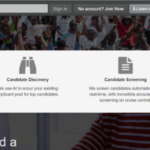What is Big Data?
Big data is an evolving term that describes the large volume of data – both structured and unstructured and semi-structured– that has the potential to be mined for information and business on a day-to-day basis. It is used in machine learning projects and other advanced analytics applications. But it’s not the amount of data that’s important. It’s what organizations do with the data that matters. It can analyze for insights that lead to better decisions and strategic business moves.
Impacts Of Big Data
Big data has created every day by the interactions of billions of people using computers, GPS devices, cell phones, medical devices, data-intensive areas such as atmospheric science, astronomical studies. Today it opens huge opportunities for those who can use it effectively. Now realizing the great importance of it, many analytical companies are engaging in finding hidden information in it. According to internet experts, the present technological advances to collect and analyze massive sets of data is likely to lead to revolutionary changes in business, and society.
To date, a lot of work has done on the tools, software, platforms, analytics etc. applied to it. Many organizations are giving attention to big it analytics for development, education, disaster management, health care, and natural resource management for benefit of society. Therefore, it is attempting to compile. And also document the real use cases, benefits, advantages, impact and future challenges of it.UN Global Pulse work on several research projects in collaboration with public and private partners demonstrating the beneficial effect of analytics. This is from monitoring early indicators of unemployment hikes to tracking fluctuations of commodity prices. Before they had recorded in official statistics.
According to thought leaders, big data is already showing the potential in areas as genetic mapping and personalized e-commerce. The unprecedented growth in processor power and software technology such as Hadoop has allowed organizations “to make decisions that simply could not make before” having a profound impact. Its influence has felt in business planning, research, sales, production and elsewhere. These have considered as the new industrial revolution. Scientists used to decode human DNA in minutes, find cures for cancer, accurately predict human behavior, optimize marketing efforts, prevent diseases and foil terrorist attacks, utilizing it. Finally, concerns about privacy express by experts cannot ignore. As many companies use our private information. This blog is all about it impact Business, Economy, Health Care, And Society.
Impacts Of Big Data On Business
“Big data” is a term that is used to describe the incredible amount of data that is gathered by companies, organizations, and governments throughout the world. This data is having a surprising impact on nearly every facet of life. Here is a closer look at the impact of it on businesses.
There are countless ways that data can be used to increase the efficiency of any type of business. For instance, companies can install specialized sensors to keep track of how their machinery is performing or to figure out how to make delivery routes as efficient as possible. Employee performance tracking can help ensure that workers are pushing themselves to their full potential. Shipments can be closely tracked and monitored as can nearly every aspect of a business. This includes keeping track of important details about employees. The sensors that are available today are extremely efficient at learning about employee habit.
Impacts Of Big Data On Economy
An EP resolution of 10 March 2016 quotes the benefits of a data-driven economy and its expected impact on GDP growth and on job creation according to different worldwide studies. While the volume and the variety of it have increased exponentially, its value for the European economy has highlighted. It is due to, by the creation of the Big Data Public and Private Partnership. Which has set up to support both technical and non-technical priority areas in the value chain? A number of indicators covering the European data market are present in this infographic. In particular regarding its size and expect developments in terms of companies, employment, and revenues with a 2020 horizon.
Impacts Of Big Data On Health Care
The new sensor devices can apply by the patients anywhere in order to monitor their state and help them avoid hospitalization. For hospitalized people, medical professionals may use predictive analytics to improve and decrease readmissions. Parkland Hospital in Dallas Texas applies advanced analytics to recognize high-risk patients and help them to overcome diseases. As a result, this hospital has reduced 30-day readmissions and got savings of more than $500,000 each year.
Big data analytics helps medicians to gather and analyze a lot of healthcare data to gain useful insights. It’s cloud platforms bring new cost-effective solutions when healthcare professionals may reach structured data. McKinsey & Company’s report found out that big data may save Americans $450 billion each year.
Impacts Of Big Data On Society
Big Data, as is with most of the disruptive technologies happening at the moment, has at first an impact on organizations. The innovators and the early adopters among the organizations are already embracing it. According to the Technology Adoption Cycle, this group represents approximately 16% and with 12% having implemented a strategy. We are almost bridging the gap to the rest of the organisations. Only when the technology has crossed the chasm, the rest of the organizations, the early and late majority and finally the laggards, will implement its strategy.
The more organizations that implement a Big Data strategy, the bigger the impact on the economy will be. As the McKinsey report famously states: It can add $ 300 billion potential annual value to US health care, add € 250 billion potential annual value to Europe’s Public sector administration and create a $ 600 billion potential annual consumer surplus. Even more, Gartner predicts that it will drive up to $ 232 billion IT spending through 2016. These are massive gains and investments that of course only occur when all organizations and governments fully start to use it. It does show however the impact of it’s on the global economy. Also when only 12% have started implementing its strategy.



